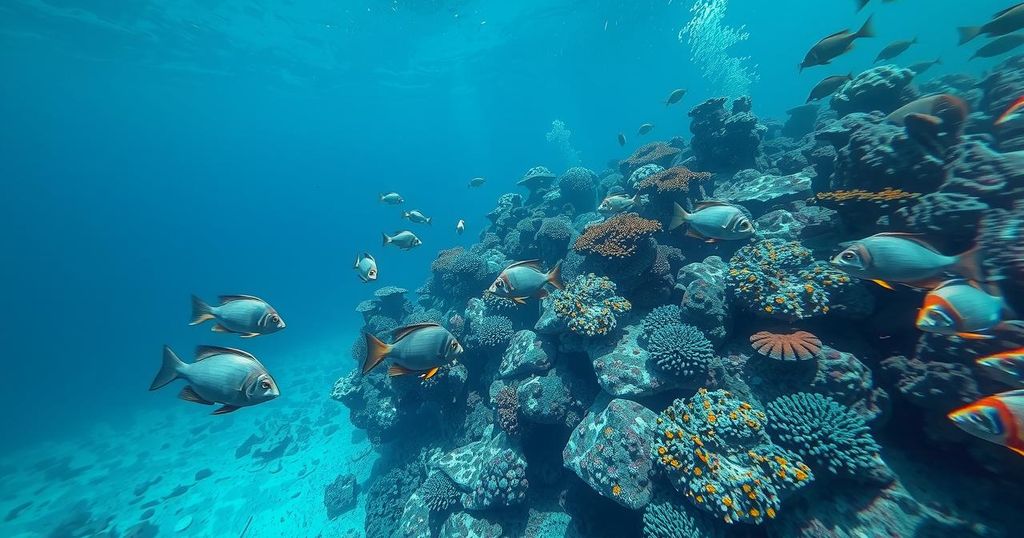Research indicates climate change has made marine heatwaves off the Western Australia coast significantly more likely, contributing to the deaths of 30,000 fish. Ocean temperatures have risen dramatically, with the likelihood of such heatwave events up to 100 times more probable due to human activities. The findings highlight the urgent need for attention to the impacts of climate change on marine ecosystems.
Recent research has revealed that climate change significantly contributed to the deaths of approximately 30,000 fish along the Western Australia coast. Marine heatwaves, which have affected these waters since September of the previous year, were found to be up to 100 times more likely to occur due to climate change, particularly during a peak event in November. The ocean temperatures in this region have been recorded as 1.5°C above average, reaching as high as 4-5°C during surface measurements over a sustained period.
The analysis conducted by Climate Central highlights the severity of the marine heatwave, determining that human-induced climate change increased the likelihood of such events by 20 times. Dr. Andrew Pershing, the chief program officer at Climate Central, emphasized that the rising ocean temperatures indicate an anomaly directly linked to the burning of fossil fuels, labeling it “not a normal event.” The organization utilized satellite data and 13 climate models to assess the impact of carbon emissions on marine heat conditions.
Moreover, research suggests that nearly 90% of current marine heatwaves can be attributed to anthropogenic global warming, with expectations of increasing frequency and duration as fossil fuel emissions persist. These heatwaves exert prolonged thermal stress on marine ecosystems, contributing to significant fish kills and threatening industries reliant on marine resources such as fishing and tourism.
Dr. Matt Rayson from the University of Western Australia noted that the marine heat, which began in the north, progressively spread to the western coast, revealing elevated temperatures at both the surface and subsurface levels. The ocean’s temperature anomalies raise the potential for severe weather events such as tropical cyclones, posing broader environmental risks.
In light of these findings, climate scientists assert that the unusual marine heat conditions off the WA coast are not random occurrences but rather manifestations of climate change. As human activities continue to pollute the atmosphere, the intensity and frequency of marine heatwaves are anticipated to rise, posing significant challenges for the health of marine ecosystems and associated industries.
The deaths of marine life along the Western Australia coast are a pressing environmental concern, particularly as climate change exacerbates the frequency and severity of marine heatwaves. These temperature anomalies have been monitored over the past several years, providing data that links human-induced factors to these disruptive events in ocean ecosystems. Understanding this context is critical for policy-making and conservation efforts aimed at mitigating the impacts of climate change on marine environments.
In summary, the significant fish deaths off the WA coast are closely tied to climate change, with recent studies indicating that marine heatwaves are occurring with alarming frequency. As anthropogenic activities continue to contribute to global warming, the repercussions for marine life and associated industries are likely to be severe. Prioritizing action to reduce fossil fuel emissions is essential to safeguard marine ecosystems and the livelihoods that depend on them.
Original Source: www.theguardian.com






